Máximo Kirchner returned from Río Gallegos last Tuesday and in just a few hours, he had met with the president, a host of governors, a group of mayors and businessmen.
The 42-year-old national lawmaker, the son of former presidents Néstor Kirchner and Cristina Fernández de Kirchner, is increasingly comfortable with Peronism's return to power and is emerging out of the shadows, positioning himself as a "builder" of consensus. It's a process that started from opposition and helped lead the Frente de Todos coalition to victory in the October 27 elections.
In the south, where he travelled to spend the holidays, Kirchner combined rest and relaxation with political meetings. He not only met with Santa Cruz Province Governor Alicia Kirchner, with whom he reviewed the numbers of her administration, he also met with mayors from across the region.
But over the last few years, Máximo has developed beyond the limits of the territory in which he was born. He concentrated himself in Buenos Aires Province, from where he grew strong enough to help create an electoral assembly that ended with unity. Now, as the leader of a unified Peronist caucus in the lower house Chamber of Deputies, Máximo is expanding his reach into national territory, becoming a key reference point for President Alberto Fernández.
Although Kirchner moved into the office for the president of the lower house in December, he still hasn't finished moving over the photos and books he had in his old office. While he is doing so, he receives most of the leaders he talks to there, except for some time spent at Government House in Buenos Aires Province or the Casa Rosada.
Last Tuesday, at Balcarce 50, he spoke for the first time with Córdoba Governor Juan Schiaretti. That was before seeing Fernández, and before greeting Interior Minister Eduardo "Wado" de Pedro, nominally the reason for his visit. There were talks about the economy. Kirchner is obsessed with foreign debt and upcoming expirations at the moment. They also talked about the paralysis that this province has suffered in terms of public works.
Kirchner and Axel Kicillof agreed to have lunch last Wednesday. The meeting with the governor of Buenos Aires Province lasted from midday to 5pm. It coincided with the province's announcement that it could not make upcoming debt repayments and the request to bondholders that they accept a delay. Máximo had followed the negotiation of government's tax law by phone, even intervening with some messages from WhatsApp to opposition leaders. During the last few years, he kept channels of communication open with Federico Salvai, the former head of Maria Eugenia Vidal's Cabinet and with her ex-security minister (now national deputy), Cristian Ritondo.
This week Kirchner also met with Sergio Massa and mayors Martín Insaurralde (Lomas de Zamora) and Ariel Sujarchuk (Escobar). He has a good relationship with UCR national deputy Mario Negri and Consenso Federal lawmaker Graciela Camaño. Since the Fernández administration came to power on December 10, he has not only spoke with Peronist governors, but also introduced himself and opened a dialogue with provincial UCR leaders.
Máximo Kirchner also met with businessmen. He is tight-lipped when asked who they are. "They are very sensitive about their names being made public," he says. One of them admits that he was surprised to be talking to Máximo about the price of gold. "He's not the PlayStation kid the media described," he said after leaving a meeting.
Máximo does not like to be compared with either Néstor or Cristina. He assures everyone that he has his own profile. He describes himself as a consensus builder. When the ex-president was fighting with the now president, he was the one who kept the dialogue open. Those around him claim that he never stopped talking to Fernández (he did so once a month). He did the same with Massa, not even when La Campora accused the him of being a traitor and the Tigre leader assured him he would end up with the gnocchis of the group. Now he talks with both every day and there is no friction.
"Nor will there be again," says Kirchner. He sees his role as strengthening the government of which he is a part and which Fernández commands.



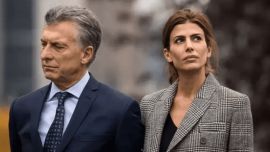








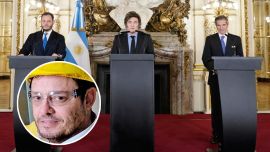
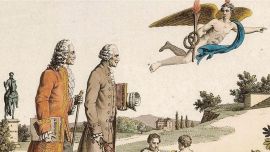

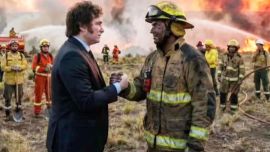
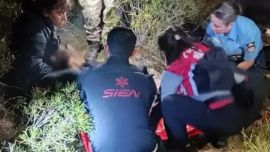
Comments